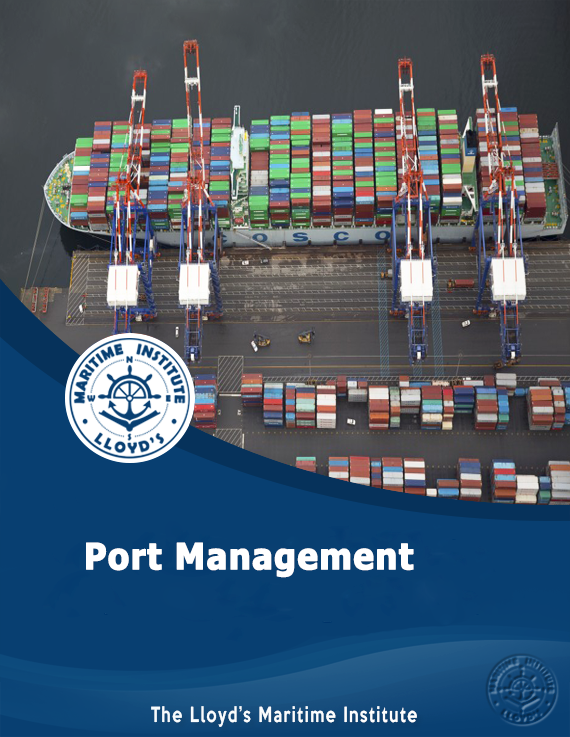How to Become a Mechanical Engineering Expert: A Guide
Imagine a future where you’re the mastermind behind innovative machines and groundbreaking systems. Becoming a mechanical engineer isn’t just a career choice; it’s an opportunity to shape the world around you.
As you read this guide, you’ll discover the steps to turn your passion for mechanics into a fulfilling profession. You’ll uncover the secrets to navigating this dynamic field, from essential skills to educational pathways. Ready to unlock your potential and make a real impact?
Dive in to find out how you can become a mechanical engineering expert and start transforming ideas into reality.
Educational Pathways
Embarking on a career in mechanical engineering begins with choosing the right educational pathways. This field demands a solid foundation in science and mathematics. Understanding these pathways helps you make informed decisions. Let’s explore the key steps in this journey.
Choosing The Right Degree
Selecting the appropriate degree is crucial. A bachelor’s degree in mechanical engineering is a common starting point. This degree equips you with fundamental skills and knowledge. It covers subjects like thermodynamics, fluid mechanics, and material science. Community colleges sometimes offer associate degrees. These can be a stepping stone to a bachelor’s program.
Importance Of Accreditation
Accreditation assures quality education. Accredited programs meet industry standards. It ensures that the curriculum is up-to-date. Look for programs accredited by ABET. This guarantees that the education meets professional standards. Accreditation also enhances employment opportunities. Employers prefer graduates from accredited schools.
Advanced Studies And Specializations
Advanced studies open doors to specialization. Master’s or doctoral degrees offer deeper knowledge. Specializations include robotics, automotive, and aerospace engineering. These fields offer unique challenges and opportunities. Advanced degrees can lead to research and development roles. They also increase earning potential and job satisfaction.
Skill Development
Skill development is crucial for aspiring mechanical engineers. Building a strong foundation in essential skills sets you on the path to success. Each skill serves as a building block, helping you excel in various areas of mechanical engineering. Let’s explore some key skills you need to develop.
Technical Skills
Mechanical engineers need a solid grasp of core technical skills. Understand the principles of physics and mathematics. These subjects form the backbone of engineering concepts. Familiarize yourself with thermodynamics, fluid mechanics, and material science. These areas are integral to mechanical engineering projects. Practical experience in labs enhances your technical understanding.
Software Proficiency
Being proficient in software tools is essential. Engineers use programs like AutoCAD for design. SolidWorks is another common tool. It helps in creating 3D models. Learn simulation software to test designs. Programs like ANSYS can simulate real-world conditions. Mastering these tools improves efficiency and accuracy.
Problem-solving Abilities
Problem-solving is at the heart of engineering. Engineers constantly face challenges needing solutions. Develop critical thinking skills. Approach problems logically and creatively. Practice breaking down complex issues into smaller parts. This makes problems easier to solve. Hands-on projects help refine these abilities.
Gaining Experience
Gaining experience is essential for a successful career in mechanical engineering. Practical experience helps bridge the gap between theory and real-world application. It is the key to understanding how machines work and solving complex problems.
Internships And Co-op Programs
Internships offer hands-on experience in a professional setting. They allow students to apply classroom knowledge to real projects. Co-op programs combine work and study. This gives students a chance to earn while learning. Both options provide valuable insights into the industry.
Entry-level Positions
Entry-level positions introduce fresh graduates to the workplace. They are a stepping stone to more advanced roles. These positions provide a chance to learn from experienced engineers. They help new engineers develop skills and gain confidence.
Mentorship Opportunities
Mentorship is a powerful tool for growth. Experienced engineers guide newcomers, offering advice and support. Mentors help identify strengths and areas for improvement. They share knowledge and experiences, enhancing professional development. Mentorship fosters a supportive learning environment.

Professional Certification
Professional certification can be a game-changer for aspiring mechanical engineers. It’s not just about adding extra letters to your name; it signifies a commitment to your field and a mastery of essential skills. Certification can open doors to better job opportunities, higher salary potential, and a respected place in the engineering community.
Popular Certifications
Which certifications should you consider? The Professional Engineer (PE) license is widely respected and often required for certain engineering positions. The Certified Engineering Technician (CET) is another option, focusing more on practical skills.
There’s also the Certified Manufacturing Engineer (CMfgE) for those interested in manufacturing processes. Each certification targets different aspects of mechanical engineering. Your career path can guide your choice.
Benefits Of Certification
Why get certified? Certification boosts your credibility and can differentiate you from other candidates in job applications. It often leads to higher salaries and positions of greater responsibility.
It also demonstrates your commitment to professional growth and staying updated with industry standards. As a certified professional, you’re seen as an expert in your field.
Steps To Certification
Ready to get certified? Start by researching the specific requirements of your chosen certification. Most require a combination of education, work experience, and passing an exam.
Create a study plan that covers all exam topics. Consider joining a study group or taking preparatory courses. These can provide valuable insights and keep you motivated.
Once you feel prepared, register for the exam. Passing it will be a milestone in your engineering career. But remember, maintaining your certification often requires ongoing education.
Are you ready to stand out in the mechanical engineering field? Certification might be your next step. It’s a commitment, but the rewards can be significant.
Networking Strategies
Networking is a crucial step in becoming a successful mechanical engineer. Building connections can open doors to opportunities, collaborations, and career advancements. But how do you effectively network in this field? Let’s explore some practical strategies that can help you build a strong professional network.
Industry Conferences
Attending industry conferences is a fantastic way to meet like-minded professionals. These events often feature workshops, presentations, and panel discussions that can enrich your knowledge. Make it a point to introduce yourself to speakers and attendees—these interactions can lead to valuable connections and insights.
Take advantage of networking sessions or coffee breaks to strike up conversations. Share your interests and career goals, and don’t hesitate to ask for advice. Remember, everyone there is looking to connect, so be bold and proactive.
Online Professional Communities
In today’s digital age, online communities can be as impactful as face-to-face interactions. Platforms like LinkedIn and specialized engineering forums are excellent places to start. Join groups that align with your interests and actively participate in discussions.
Ask questions, share articles, and comment on posts. This not only increases your visibility but also showcases your knowledge and passion for the field. How can you contribute to the community in a meaningful way?
Building A Personal Brand
Building a personal brand is more important than ever. A strong online presence can help you stand out in a crowded field. Start by curating your LinkedIn profile with a professional photo, detailed work history, and examples of your projects.
Consider starting a blog or a YouTube channel to share your expertise and experiences. When you share your unique insights, others in the field are more likely to remember you. What story do you want to tell about your journey in mechanical engineering?
Effective networking is about building genuine relationships. Start small, but think big. As you apply these strategies, remember that every connection is an opportunity to learn and grow.

Staying Current
Explore the world of mechanical engineering by staying updated with the latest technologies and trends. Read industry magazines and join online forums to connect with professionals. Gain practical experience through internships and workshops to enhance your skills.
Staying current in mechanical engineering is crucial. The field evolves rapidly with new technologies. Engineers must stay updated to excel in their careers. This requires continuous learning and adaptation. Here are some ways to stay current in the field.
Continuing Education
Continuing education helps engineers keep up with industry changes. Many universities offer courses for working professionals. Online platforms also provide access to relevant courses. These courses cover new tools and techniques in engineering. Attending workshops and seminars is beneficial too. They offer hands-on experience with the latest technologies.
Industry Publications
Reading industry publications keeps engineers informed. These magazines and journals publish the latest research and developments. They highlight new trends and breakthroughs in mechanical engineering. Subscribing to these resources ensures regular updates. Online forums and communities offer additional insights. Engaging with peers helps share knowledge and experiences.
Emerging Technologies
Emerging technologies shape the future of mechanical engineering. Robotics and automation are transforming manufacturing processes. 3D printing offers new possibilities in design and prototyping. Understanding these technologies is essential for career growth. Attending tech expos and trade shows provides exposure to innovations. Engineers should remain curious and open to learning.
Career Advancement
Mechanical engineering opens doors to a myriad of career opportunities. Once you’ve mastered the fundamentals, it’s time to think about advancing your career. You might wonder: How can you move beyond your current role and achieve greater success?
Leadership Roles
Leadership roles in mechanical engineering are both challenging and rewarding. To climb the ladder, focus on developing your communication and management skills. These are crucial in leading teams and projects effectively.
Consider volunteering for projects that stretch your abilities. When a colleague shared their experience of leading a challenging project, they mentioned how taking initiative helped them earn respect and eventually a promotion. Could stepping up in your current role pave the way for leadership?
Entrepreneurial Opportunities
If you have a knack for innovation, entrepreneurship might be your path. Mechanical engineers often spot gaps in the market and create solutions. A friend once turned their prototype into a successful business, simply because they believed in its potential.
Start by identifying problems you can solve. Does your engineering knowledge inspire ideas that could become products or services? Networking with industry peers can provide insights and resources for launching your venture.
Global Opportunities
Mechanical engineering is a global profession, offering opportunities beyond borders. Companies worldwide seek skilled engineers to solve complex problems. A colleague recently took a role in Germany, leveraging their expertise on an international stage.
Research countries where your skills are in demand. Are there international projects that excite you? Consider learning a new language or understanding cultural differences to enhance your global career prospects.
Your journey in mechanical engineering is filled with potential for growth. Which path will you choose to advance your career?

Frequently Asked Questions
What Qualifications Are Needed For Mechanical Engineering?
To become a mechanical engineer, you typically need a bachelor’s degree in mechanical engineering. Some positions may require a master’s degree. It’s also beneficial to have experience with CAD software and strong problem-solving skills. Licensing, such as the Professional Engineer (PE) certification, can enhance job prospects.
How Long Does It Take To Become A Mechanical Engineer?
It generally takes four years to earn a bachelor’s degree in mechanical engineering. If you pursue a master’s degree, it could take an additional two years. Gaining work experience through internships can also be valuable during your studies.
What Skills Are Essential For Mechanical Engineers?
Mechanical engineers should have strong analytical and problem-solving skills. Proficiency in computer-aided design (CAD) software is crucial. Good communication skills are necessary for collaborating with teams. Understanding mathematics, physics, and materials science is also important for designing and analyzing mechanical systems.
Can You Become A Mechanical Engineer Without A Degree?
Becoming a mechanical engineer without a degree is challenging. Most positions require at least a bachelor’s degree in mechanical engineering. However, some technicians and technologists may work in the field with an associate degree. Experience and additional certifications can sometimes compensate for formal education.
Conclusion
Becoming a mechanical engineer is a rewarding journey. It requires dedication and passion. Start by understanding the basics of math and science. These are crucial skills. Pursue a relevant degree from a recognized institution. This will provide essential knowledge. Hands-on experience is equally important.
Internships can offer practical insights. Stay curious and keep learning new technologies. Join professional groups to network and grow. This helps in finding job opportunities. Your hard work will open doors to a fulfilling career. Embrace challenges and celebrate achievements.
Your future as a mechanical engineer awaits.





























